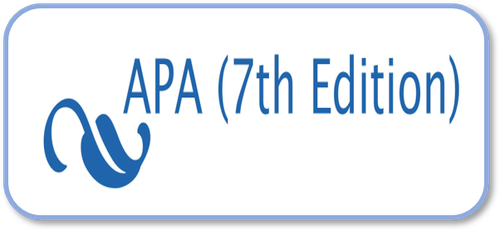How Self-Efficacy Drives Job Performance: The Role Of Job Anxiety And Intrinsic Motivation
DOI:
https://doi.org/10.24912/jm.v25i2.735Abstract
This study seeks to investigate self-efficacy on job performance through the role of work anxiety and intrinsic motivation. The research sample consisted of 83 employees and ten leaders on the STIEM Bongaya campus, and data analysis used Warp PLS 7.0. This study does not support the hypothesis that the better the self-efficacy, the higher the job performance. So, as a practical implication, self-efficacy is not the main determining factor in determining the value of job performance in tertiary institutions. Interestingly, self-efficacy has a positive and significant effect on work anxiety, and subsequently, job performance is getting better. It was found that the better the self-efficacy, the better the intrinsic motivation, and the better job performance. Hence, the role of work anxiety and intrinsic motivation as a complete mediation variable. The higher the self-efficacy, the higher the anxiety and the higher the job performance, but the impact is not significant or significant. Furthermore, the better the self-efficacy, the higher the intrinsic motivation and higher job performance, but the impact is not significant.
References
Afzal, S., Arshad, M., Saleem, S., and Farooq, O. (2019). The impact of perceived supervisor support on employees’ turnover intention and task performance: Mediation of self-efficacy. Journal of Management Development, 38(5), 369–382.
Bennett, R. (2011). Brand managers mindful self-management of their professional experience: Consequences for pay, self-efficacy and job performance. Journal of Brand Management, 18(8), 545–569.
Çetin, F., and ASkun, D. (2018). The effect of occupational self-efficacy on work performance through intrinsic work motivation. Management Research Review, 41(2), 186–201.
Chaurasia, S. S., Verma, S., and Singh, V. (2019). Exploring the intention to use M-payment in India: Role of extrinsic motivation, intrinsic motivation and perceived demonetization regulation. Transforming Government: People, Process and Policy, 13(3-4), 276–305.
De Clercq, D., Azeem, M. U., and Haq, I. U. (2020). But they promised! How psychological contracts influence the impact of felt violations on job-related anxiety and performance. Personnel Review.
De Clercq, D., Haq, I. U., and Azeem, M. U. (2018). Self-efficacy to spur job performance: Roles of job-related anxiety and perceived workplace incivility. Management Decision, 56(4), 891–907.
Deer, L. B. K., Gohn, K., and Kanaya, T. (2018). Anxiety and self-efficacy as sequential mediators in US college students’ career preparation. Education and Training, 60(2), 185–197.
Engku Kamarudin, E. M., Wan Sulaiman, W. S., Sarnon, N. H., and Amin, a. S. (2020). Data on self-awareness, self-determination, and self-efficacy of opioid-dependent patients receiving methadone treatment before and after getting individual psycho-educational (i-SEAZ) intervention. Data in Brief, 30(xxx), xxx-xxx.
Feng, Y., Jonathan Ye, H., Yu, Y., Yang, C., and Cui, T. (2018). Gamification artifacts and crowdsourcing participation: Examining the mediating role of intrinsic motivations. Computers in Human Behavior, 81, 124–136.
Gashi Tresi, D., and Mihelič, K. K. (2018). The roles of self-efficacy and leader–member exchange in the relationship between job crafting and work–self facilitation: A moderated mediation model. Personnel Review, 47(7), 1362–1384.
Gkorezis, P., and Kastritsi, A. (2010). Employee expectations and intrinsic motivation: work-related boredom as a mediator. The Eletronic Library, 34(1), 1–5.
Harju, L. K., Hakanen, J. J., and Schaufeli, W. B. (2016). Can job crafting reduce job boredom and increase work engagement? A three-year cross-lagged panel study. Journal of Vocational Behavior, 95-96(xxx), 11–20.
Hayati, K., and Caniago, I. (2012). Islamic Work Ethic: The Role of Intrinsic Motivation, Job Satisfaction, Organizational Commitment and Job Performance. Procedia - Social and Behavioral Sciences, 65(ICIBSoS), 272–277.
Heyder, A., Weidinger, A. F., Cimpian, A., and Steinmayr, R. (2020). Teachers’ belief that math requires innate ability predicts lower intrinsic motivation among low-achieving students. Learning and Instruction, 65(October 2018), 101220.
Hobfoll, N. E., Freendy, J., Lane, C., and Geller, P. (1990). Conservation of Social Resources: Social Support Resources Theory. Journal of Science and Personal Relationships, 7(xxx), 465–478.
Hobfoll, S. E. (2001). The influence of culture, community, and the nested-self in the stress process: Advancing conservation of resources theory. Applied Psychology, 50(3), 337–421.
Hobfoll, S. E., and Lilly, R. S. (1993). Resource conservation as a strategy for community psychology. Journal of Community Psychology, 21(2), 128–148.
Hur, W. M., Moon, T. W., and Lee, J. H. (2020). The effect of self-efficacy on job performance through creativity: the moderating roles of customer incivility and service scripts. Asia Pacific Journal of Marketing and Logistics.
Jabagi, N., Croteau, A. M., Audebrand, L. K., and Marsan, J. (2019). Gig-workers’ motivation: thinking beyond carrots and sticks. Journal of Managerial Psychology, 34(4), 192–213.
Jiang, B., Wang, H., Larsen, L., Bao, F., Li, Z., and Pryor, M. (2019). Quality of sweatshop factory outdoor environments matters for workers’ stress and anxiety: A participatory smartphone-photography survey. Journal of Environmental Psychology, 65(August) 26(2) 34-46.
Kaakeh, A. K., Hassan, M. K., Van-Hemmen, S., and Hossain, I. (2020). Understanding self-efficacy and performance of salespersons in Islamic banking. Journal of Islamic Accounting and Business Research, 11(5), 973–988.
Kachaturoff, M., Caboral-Stevens, M., Gee, M., and Lan, V. M. (2020). Effects of peer-mentoring on stress and anxiety levels of undergraduate nursing students: An integrative review. Journal of Professional Nursing, 36(4), 223–228.
Khedhaouria, A., Gurău, C., and Torrès, O. (2015). Creativity, self-efficacy, and small-firm performance: the mediating role of entrepreneurial orientation. Small Business Economics, 44(3), 485–504.
Kimura, T., Bande, B., and Fernández-Ferrín, P. (2019). The roles of political skill and intrinsic motivation in performance prediction of adaptive selling. Industrial Marketing Management, 77(July), 198–208.
Li, C. R., Yang, Y., Lin, C. J., and Xu, Y. (2020). The curvilinear relationship between within-person creative self-efficacy and individual creative performance: the moderating role of approach/avoidance motivations. Personnel Review, xxx(2016), xxx–xxx.
Luthans, F., and Peterson, S. J. (2002). Employee engagement and manager self-efficacy: implications for managerial effectiveness and development. Journal of Management Development, 21(5), 376–387.
Lyons, P., and Bandura, R. (2019). Self-efficacy: core of employee success. Development and Learning in Organizations, 33(3), 9–12.
Sugahara, S., Suzuki, K., and Boland, G. (2010). Students’ major choice in accounting and its effect on their self-efficacy towards generic skills: An Australian study. Asian Review of Accounting, 18(2), 131–147.
Sukserm, T., and Takahashi, Y. (2012). Self efficacy as a mediator of the relationships between learning and ethical behavior from human resource development in corporate social responsibility activity. Asia-Pacific Journal of Business Administration, 4(1), 8–22.
Sumail, L. O., and Abdullah, S. (2019). Innovative Behavior And Emotional Intelligence Of Managers In Managing A Catering Business. Jurnal Manajemen, 23(2), 290.
Taylor, S. (2020). Anxiety disorders, climate change, and the challenges ahead: Introduction to the special issue. Journal of Anxiety Disorders, 76(September), 102313. h
Zalewska, A. M. (2011). Relationships between anxiety and job satisfaction - Three approaches: “Bottom-up”, “top-down” and “transactional.” Personality and Individual Differences, 50(7), 977–986.
Downloads
Published
How to Cite
Issue
Section
License
Copyright (c) 2021 Jurnal Manajemen

This work is licensed under a Creative Commons Attribution-NonCommercial-ShareAlike 4.0 International License.
This journal provides immediate open access to its content on the principle that making research freely available to the public supports a greater global exchange of knowledge.

This work is licensed under a Creative Commons Attribution-NonCommercial-ShareAlike 4.0 International License



















